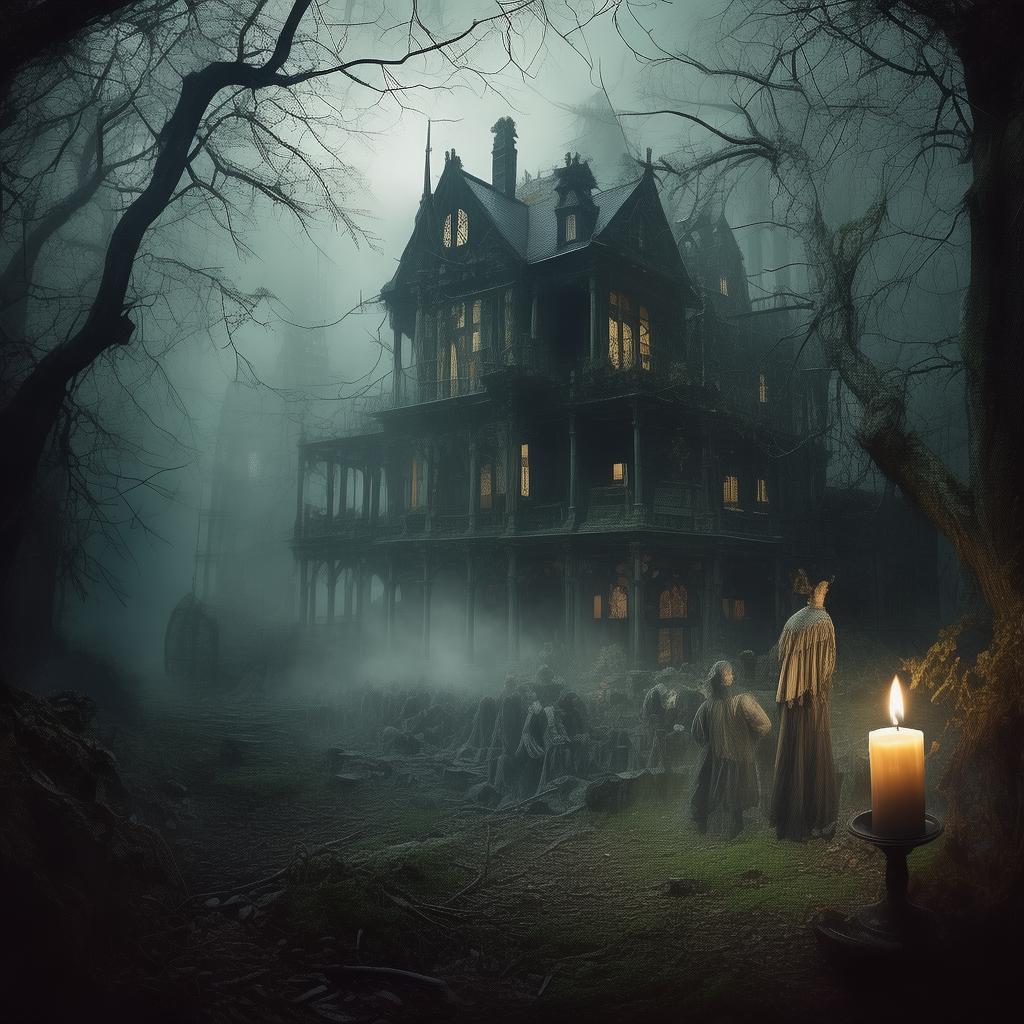Whispers from the Old Piano
In the shadowy alleys of the bustling city of London, an old piano shop known as Arnold's Piano had long been a place of intrigue. The shop itself, with its faded sign and creaky floorboards, was a relic from a bygone era. It was a place where dreams of melody met the grim reality of forgotten memories.
Amidst the dusty pianos and old sheet music lay the story of the old piano that never spoke. It was a grand instrument, its keys covered in dust, its frame slightly bowed. It was said to have once been owned by a famous composer whose works were lost to the annals of time. Yet, as days passed, the shop became more than just a relic of the past—it became a place where the whispers of the dead seemed to resonate from within the walls.
One crisp autumn evening, a young musicologist named Eleanor was drawn to Arnold's Piano. Her research had brought her here, searching for any remnants of the composer's work. The shopkeeper, an elderly man named Mr. Hargrove, greeted her with a knowing smile that suggested he had more than the old sheet music to share.
"The piano," he said, his voice a mix of curiosity and caution, "has a history all its own."
Eleanor's eyes were drawn to the grand piano, its keys silent and its lid closed. She couldn't shake the feeling that something was amiss, something beyond the ordinary.
Days turned into weeks as Eleanor worked tirelessly, examining every note and every scratch on the piano's surface. She began to notice strange occurrences in the shop—piano keys being played in the dead of night, a haunting melody that seemed to echo from the very walls. But when she investigated, the shop was as silent and still as the grave.
Determined to uncover the truth, Eleanor decided to spend the night in the shop, armed with a flashlight and her research notes. As the moon climbed higher, casting long shadows through the shop, she felt the first shivers of unease.
The air grew colder as the hours ticked by, and Eleanor's determination began to wane. The silence of the shop seemed oppressive, as if the very air was trying to suffocate her. Then, it happened—the piano started to play, a haunting melody that made the hair on the back of her neck stand on end.
The notes were familiar, yet she had never heard them before. It was a melody that spoke of lost love, of despair, and of an unfulfilled destiny. The melody seemed to pull at her soul, a siren call from the depths of her being.
Eleanor moved closer to the piano, her heart pounding. She placed a hand on the keys, hoping to silence the instrument, but they refused to respond. Instead, the melody grew louder, more haunting.
Suddenly, a figure appeared in the corner of the shop. It was Mr. Hargrove, but he was different. His eyes were wild, and his face was contorted with emotion. He rushed towards the piano, his voice filled with fear.
"No!" he shouted. "Please, don't!"
Before Eleanor could react, the piano began to levitate. It lifted from the ground, moving towards Mr. Hargrove, who had backed himself into a corner, his eyes wide with terror.
"No, please!" Mr. Hargrove begged, but it was too late. The piano came crashing down, hitting Mr. Hargrove with full force.
Eleanor ran towards him, her heart breaking at the sight. But as she reached him, she realized something was wrong. The man was not Mr. Hargrove; it was a ghostly figure, a shade of the composer whose melodies had haunted her every step of the way.

The composer's ghost spoke, his voice echoing through the shop, "I was a man who lived and loved and lost. My melodies are my final words to the world, a testament to the sorrow that clings to the unfulfilled."
Eleanor watched in horror as the ghostly composer's fingers danced across the keys, his last act of creation. The melody reached its climax, a crescendo of emotion and sorrow. Then, as quickly as it had come, it ended.
The composer's ghost faded, leaving Eleanor and the piano to return to their former stillness. The shopkeeper appeared, his expression somber.
"Eleanor," he said softly, "you've heard the story of Arnold's Piano. Now you understand its truth."
As Eleanor left the shop, the haunting melody played once more, this time without fear or terror—it was a final goodbye from a soul finally at peace. She realized that the story of Arnold's Piano was not just about a lost composer; it was about the enduring power of love and the enduring cost of unfulfilled dreams.
✨ Original Statement ✨
All articles published on this website (including but not limited to text, images, videos, and other content) are original or authorized for reposting and are protected by relevant laws. Without the explicit written permission of this website, no individual or organization may copy, modify, repost, or use the content for commercial purposes.
If you need to quote or cooperate, please contact this site for authorization. We reserve the right to pursue legal responsibility for any unauthorized use.
Hereby declared.









